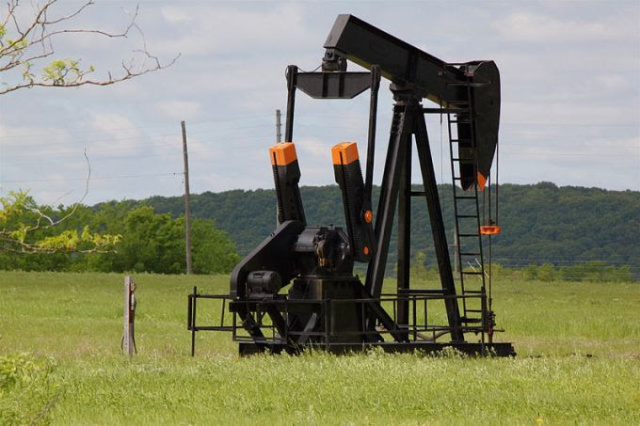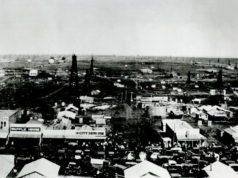(Update: The Associated Press reported early Tuesday after this commentary had published that Russia’s energy minister said his country has agreed with OPEC members Saudi Arabia and Venezuela to freeze oil production levels if other nations join the initiative.)
With oil prices below $30 a barrel and Chesapeake Energy stock below $2 a share, it is no secret that Oklahoma is hurting. Low prices at the pump are a poor consolation prize for lay-offs, a massive $901 million (and growing) state-budget shortfall, and struggling rural towns. Yet it is not just Oklahoma’s economy that is intrinsically tied to the price of oil. Countries important to the global security apparatus like Russia, Iraq and Saudi Arabia have similarly undiversified economies. Low oil prices even impact hostile non-state actors such as Islamic State (also known as ISIS and ISIL).
Much like Oklahoma, when oil-producing nations face low prices, budgets fall apart, services are cut, citizens become dissatisfied, and leaders look for ways to distract their population while they fumble for solutions. The following are snapshots of how an oil bust affects other parts of the world and, indirectly, the United States.
Russia

The country considered by Secretary of Defense Ash Carter to be this country’s premiere security threat is not doing so hot. Russia’s economy shrank 3.7 percent, retail sales dipped 10 percent, and capital investment plunged 8.4 percent in 2015. Western sanctions are partly to blame, but profit from oil exports comprise half of the Russian budget — and it depended on oil staying above $50 a barrel.
Some might see a faltering Russian economy as good news for a competing U.S., but the last time oil prices stayed this low, the Soviet Union collapsed — something Russia is keen to remember. Ironically, an economically weak Russia at a time when it seeks to establish itself as a world power again could embolden the nation to take more risks. Russia likely seeks to expand its influence in Eastern Europe and the Middle East in response to — and in spite of — its economic troubles.
Iraq
Iraq faces similar problems to Russia, as its 2015 austerity budget was based on oil at $56 a barrel. But unlike Russia, Iraq’s status as an ally makes low oil prices problematic for the U.S. Iraq is currently fighting a brutal war against Islamic State and, with Iraq already cutting public services to fund its defense, even lower oil prices mean an underfunded military to go along with an underfunded public sector. To compound problems, Iraq is stuck in a cruel catch-22: It needs to produce oil to fund the government, but producing oil lowers oil prices and defunds its government.
Counterinsurgency theory is complicated, but a lack of infrastructure and weak security forces are generally the reason for Iraq’s struggles against Islamic State. The U.S. has already been forced to increase military assistance, and it is likely that the “degrade” phase of Operation Inherent Resolve will turn to “destroy,” requiring more commitment from the U.S. military in the coming year.

Saudi Arabia
Saudi production heavily affects the price of oil, but the kingdom does not wish to lower its production and lose market share to a surging U.S. and a newly sanctions-free Iran. Unfortunately, without the oil profit on which Saudi Arabia relies, it has been forced to delay payments to government workers and increase taxes on fuel by 50 percent, among other austerity measures.
With the Saudi war in Yemen against Shi’a Houthi rebels entering its 11th month and the prospect of Saudi troops deploying to Syria, Saudi Arabia could overreach its oil-funded military and depend on the U.S. to defend it.
Additionally, Saudi Arabia is home to between 2,000 and 2,500 foreign fighters in Iraq and Syria, the second-highest after (a significantly more populated) Russia. The link between poverty and terrorism is tenuous, but an economically weakened Saudi Arabia could encourage more citizens to join Islamic State or reduce government counterterrorism abilities.
Islamic State
The so-called Islamic State is not actually a state (and it is highly contested as to whether it is Islamic), but it, too, relies on oil sales to fund its infrastructure and fighters’ salaries. A combination of the coalition bombing campaign in Syria and low oil prices have forced Islamic State to cut its salaries in half. Unlike Russia, Iraq and Saudi Arabia, this is one case where low oil prices are indirectly helping the strategic interests of the United States.
Perhaps every cloud has its silver lining after all.






















